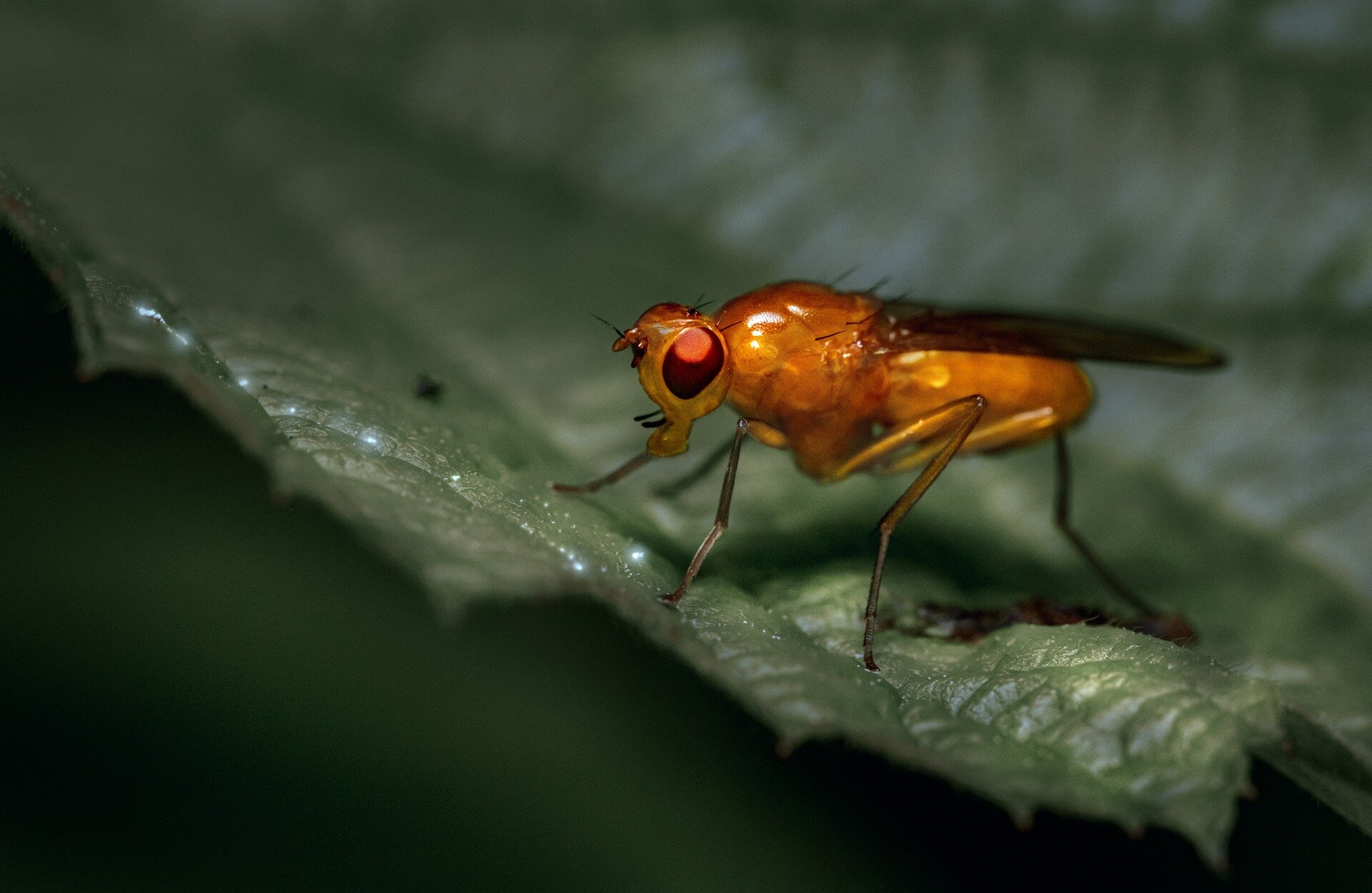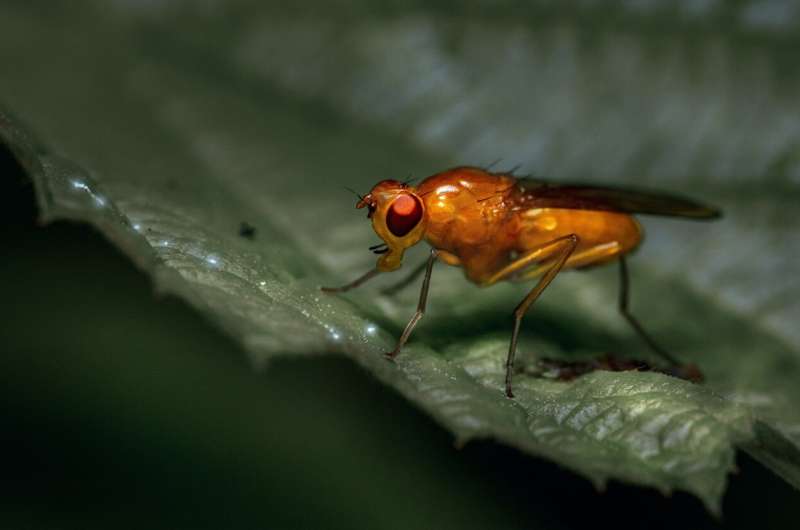

Fruit flies continue to mate with each other even when infected with deadly pathogens—reveals a study by researchers at the University of Birmingham.
According to results published today in Proceedings of the Royal Society B, both male and female fruit flies infected with bacterial pathogens show normal levels of courtship and mating success.
Mounting an immune response is energetically ‘costly’, so infections are typically thought to reduce the amount of energy available for other activities such as mating. Surprisingly, however, this study demonstrated that infected fruit flies continued to engage in courtship and mating, regardless of whether either the male or the female fly was infected.
Dr. Carolina Rezaval, the research team leader at the University of Birmingham explains: “Animals have limited energy resources that need to be distributed among different activities, like fighting an infection or mating. We were interested to understand how animals prioritize and balance their investment in immune defense and reproduction.”
Saloni Rose, a Ph.D. student with Dr. Rezaval, tackled this question using the fruit fly Drosophila. By infecting both male and female fruit flies with different pathogens, ranging in type and severity, she made the surprising discovery that courtship and mating behaviors were similar in both infected and uninfected flies. This was also true when the flies’ immune system was artificially activated using genetic manipulation. Moreover, uninfected flies mated equally frequently with both infected and healthy partners, suggesting that they do not select against mates who are infected.
Flies are not oblivious to infection, however. Previous studies have shown that infected flies can show abnormal locomotion, sleep and feeding behaviors. Consequently, this new study suggests that courtship and mating behaviors are prioritized, even when other behaviors are altered during the development of the infection.
When faced with a potential life threat, some animals respond by investing more into reproduction, likely in attempt to pass on genes to the next generation. This may well be what is happening with fruit flies in the conditions tested in the lab. More work is needed to find out what is going on in the brain to maintain reproductive behaviors in the face of infection.
The team worked in collaboration with Professor Marc Dionne (Imperial College), Dr. Esteban Beckwith (IFIBYNE, Argentina) and Professor Robin May (Birmingham University).
Food or sex? Fruit flies give insight into decision-making
Pre-copulatory reproductive behaviours are preserved in Drosophila melanogaster infected with bacteria, Proceedings of the Royal Society B Biological Sciences (2022).
University of Birmingham
Citation:
Fruit flies prioritize mating over survival: study (2022, May 10)
retrieved 10 May 2022
from https://phys.org/news/2022-05-fruit-flies-prioritize-survival.html
This document is subject to copyright. Apart from any fair dealing for the purpose of private study or research, no
part may be reproduced without the written permission. The content is provided for information purposes only.